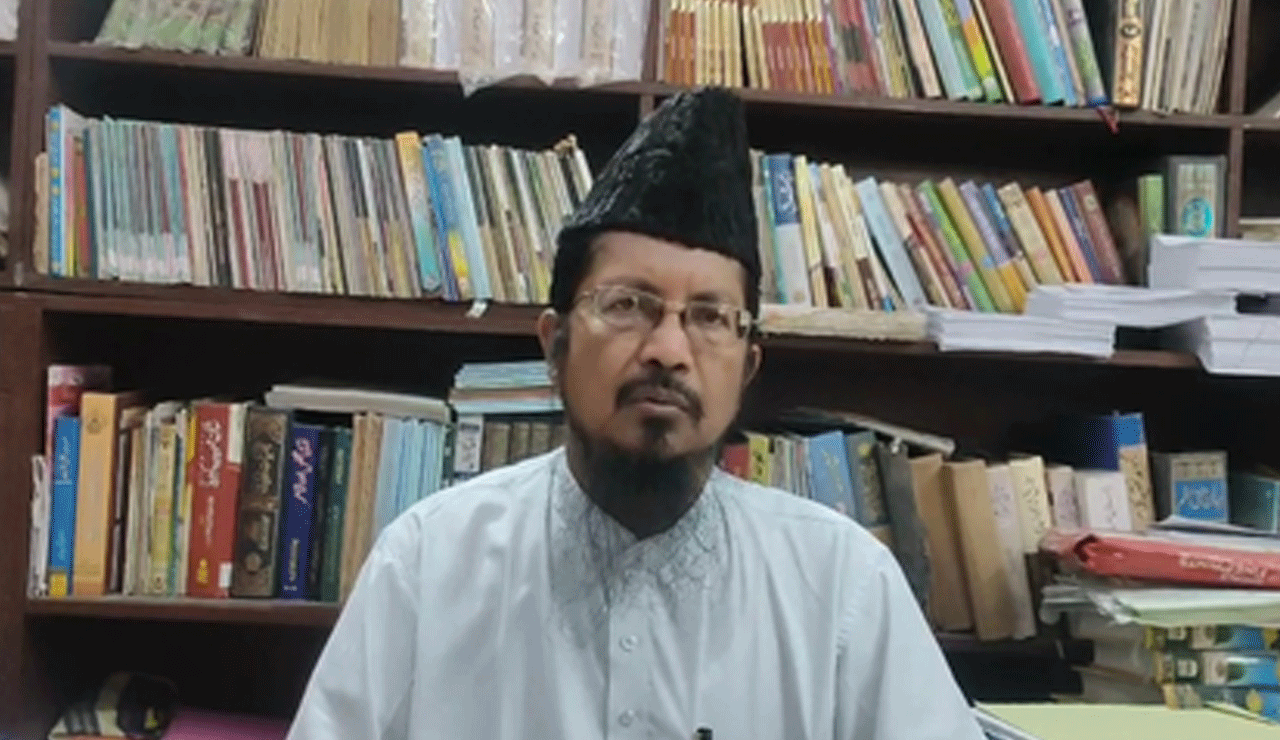Demolition, sealing of Madrasas injustice to minorities: All India Muslim Jamaat chief
Maulana Shahabuddin Razvi Bareilvi, the National President of the All India Muslim Jamaat (AIMJ), has strongly condemned the recent demolitions and sealing of madrasas in Madhya Pradesh and Uttarakhand, following the implementation of the new Waqf (Amendment) Act.

Bareilly: Maulana Shahabuddin Razvi Bareilvi, the National President of the All India Muslim Jamaat (AIMJ), has strongly condemned the recent demolitions and sealing of madrasas in Madhya Pradesh and Uttarakhand, following the implementation of the new Waqf (Amendment) Act.
Table of Contents
In a statement issued on Monday, Maulana Shahabuddin Razvi Bareilvi described these actions as a blatant violation of justice and a direct assault on the rights of the minority communities in India. He further stated that the demolition of madrasas and sealing of educational institutions under the newly enforced law infringes upon the constitutional rights of religious minorities and violates the principles of secularism and educational freedom guaranteed under the Indian Constitution.
Condemnation of the Actions in Madhya Pradesh and Uttarakhand
Maulana Shahabuddin Razvi specifically highlighted the destruction of a 30-year-old madrasa in Panna district, Madhya Pradesh, where bulldozers were used to raze the building. He also condemned the sealing of several madrasas in Haldwani, Uttarakhand. The AIMJ president expressed his concerns that such actions would severely harm the educational infrastructure and rights of the Muslim community.
He remarked, “The Constitution guarantees freedom to all citizens to run and manage educational institutions. The government does not have the right to bulldoze or seal madrasas. These actions undermine the trust of the minority community in the system.”
Also Read: Historic Move: Telangana Implements SC Categorization in Education and Jobs
The Waqf (Amendment) Act: Controversy and Criticism
The Waqf (Amendment) Act, 2025, which officially came into force on April 8, has sparked intense debate across the country. While the BJP-led NDA government has defended the Act, claiming it is designed to increase transparency and empower marginalized sections of the Muslim community, particularly women, it has faced criticism from several Muslim organizations, including the All India Muslim Personal Law Board (AIMPLB), and opposition parties.
The law’s critics argue that it undermines the autonomy of Muslim institutions and restricts their ability to function freely, while also threatening to disempower the community. The Act has been challenged in the Supreme Court for being discriminatory and unconstitutional.
Protests and Unrest in Murshidabad
The controversy surrounding the Waqf Act has led to violent protests in various parts of the country. In West Bengal’s Murshidabad district, protests erupted in opposition to the Act, resulting in three fatalities and the arrest of over 200 individuals. In response, the Calcutta High Court has ordered the deployment of Central Armed Police Forces (CAPF) to restore peace in the area.
Impact on Religious and Educational Institutions
The ongoing demolition of madrasas and the unrest in Murshidabad highlight the growing tensions and divisions over the Waqf Act. Many believe that the law not only targets religious institutions but also threatens the cultural and educational rights of the Muslim community.
As the controversy surrounding the Waqf (Amendment) Act continues to unfold, Maulana Shahabuddin Razvi Bareilvi’s statement serves as a powerful reminder of the need to protect the rights of religious and educational institutions in India, and to ensure that minority communities are not marginalized by the implementation of new laws.
A Call for Unity and Justice
Maulana Shahabuddin Razvi has called on the government to respect the constitutional rights of Muslims and minority communities, urging for a fair and just resolution to the ongoing issues related to the Waqf (Amendment) Act. As the legal challenges continue and protests escalate, the future of the Waqf Act and its implications on the country’s secular fabric remain uncertain.
